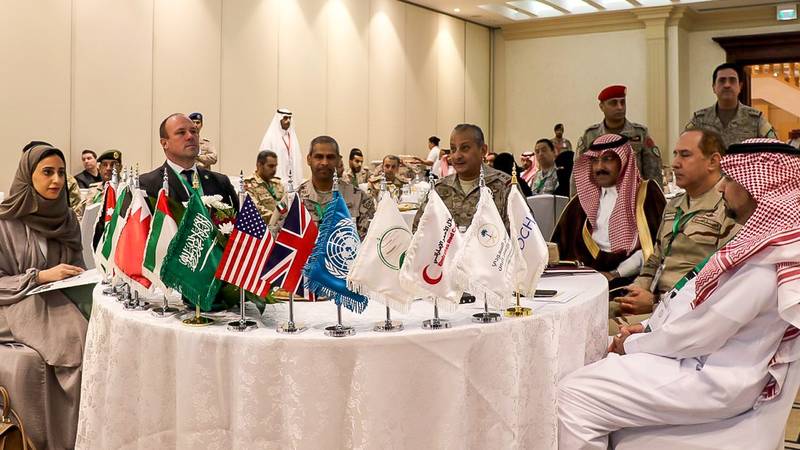SDRPY Participates in Yemen Humanitarian Operations Workshop Launched by Saudi-led Coalition Command
Riyadh / 6 Dhu’l-Qi’dah (9 July 2019) – The Saudi Development and Reconstruction Program for Yemen (SDRPY) is participating in the “JFC Humanitarian Operations Workshop,” organized over four days by the Joint Forces Command (JFC) of the Coalition to Restore Legitimacy in Yemen. The opening on Monday was attended by H.R.H. Major-General Fahad bin Turki bin Abdul Aziz Al Saud, Commander of the JFC; H.E. Mohammed bin Saeed Al Jabir, Ambassador of the Custodian of the Two Holy Mosques to Yemen and Supervisor-General of SDRPY; and several senior Coalition officials.
At the opening, Maj.-Gen. Prince Fahad bin Turki stressed that Saudi-led military operations were aimed, first and foremost, at the protection of the Yemeni people.
“Any action that helps raise the standard of living of our brothers and sisters in Yemen and contributes to achieving development and stability for them is a positive action,” said Prince Fahad bin Turki. “It is in fact more important than military action.”
For his part, Amb. Al Jabir said that the workshop had come at a time when SDRPY was already working with the Yemeni government to achieve peace, connecting the humanitarian phase of operations to the development phase.
“Several vital sectors in different Yemeni governorates are included in line with a strategy and vision that puts the welfare of the Yemeni people first,” noted the Saudi envoy to Yemen. “This strategy addresses the need for services, reducing unemployment, mobilizing the economy, and stabilizing the currency through the Saudi deposit of USD 3.2 billion to the Central Bank of Yemen.”
Amb. Al Jabir highlighted SDRPY’s role in supplying electricity to Yemen’s power plants in installments valued at USD 180 million, “helping to light homes and shops and achieve regular electricity for over 18 million beneficiaries.” This had been reflected, he said, in “the revival of economic and social life in Yemen,” and the palpable support Yemen’s government had experienced in paying salaries.
Because development “could only be achieved in conditions of security and stability,” added the ambassador, SDRPY has launched projects immediately in liberated areas, constituting 85% of Yemeni territory, and was now speeding implementation of projects to address priority needs in all provinces. These include border guard and security sector reform, and rehabilitation of police and local authorities.
SDRPY is implementing projects in seven sectors – healthcare, education, transport, water, electricity, security, and agriculture & fisheries – in coordination with local Yemeni authorities and in cooperation with Yemeni companies to support the Yemeni economy and provide job opportunities. Projects to achieve food security support agriculture, fishing and livestock farming, accounting for more than 70% of Yemenis’ income.
In the development track, SDRPY is working with Yemeni partners such as the Small and Micro Enterprise Promotion Service (SMEPS), which is part of the Social Fund for Development in Yemen; international partners such as the World Bank and Islamic Development Bank; and United Nations agencies, including the Food and Agriculture Organization (FAO) and the World Food Programme (WFP), to design initiatives in support of community and economic development.
